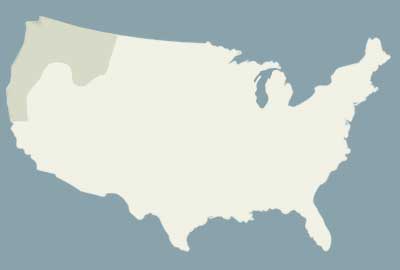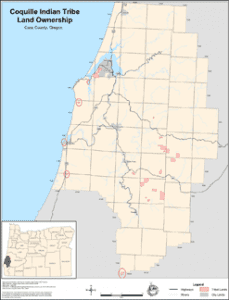Tribal Profiles
- Tribal Profiles
- Pacific Northwest
- Blue Lake Rancheria
- Confederated Salish and Kootenai Tribes
- CSKT Bison Range
- Colville Tribe
- Coquille Tribe
- Jamestown S’Klallam Tribe
- Karuk Nation
- Karuk Cultural Burning
- Lummi Nation
- Nez Perce Tribe
- Nez Perce Tribe: Clearwater River Subbasin Climate Change Adaptation Plan
- Nooksack Indian Tribe
- Qualco Energy
- Quileute Tribe
- Quinault Indian Nation
- Samish Indian Nation
- Siletz Indian Tribe
- Swinomish Tribe
- Swinomish Tribe: Clams
- Swinomish Tribe Tsleil Waututh
- Tulalip Tribes
- University of Oregon TCCP
- Yurok Tribe
- Tribal Profiles
- Pacific Northwest
- Blue Lake Rancheria
- Confederated Salish and Kootenai Tribes
- CSKT Bison Range
- Colville Tribe
- Coquille Tribe
- Jamestown S’Klallam Tribe
- Karuk Nation
- Karuk Cultural Burning
- Lummi Nation
- Nez Perce Tribe
- Nez Perce Tribe: Clearwater River Subbasin Climate Change Adaptation Plan
- Nooksack Indian Tribe
- Qualco Energy
- Quileute Tribe
- Quinault Indian Nation
- Samish Indian Nation
- Siletz Indian Tribe
- Swinomish Tribe
- Swinomish Tribe: Clams
- Swinomish Tribe Tsleil Waututh
- Tulalip Tribes
- University of Oregon TCCP
- Yurok Tribe

Climate Change and the Coquille Indian Tribe
Planning for the effects of climate change and reducing greenhouse gas emissions
Click HERE for PDF version. Background
Background
Regardless of the causes, members of the Coquille Indian Tribe are observing changes locally in the forest, prairies, streams, and ocean, in precipitation patterns, stronger storms, temperature extremes and fluctuation, and in the timing of seasons and processes like flowering and migration. Because of the potential risks climate change poses, the Coquille Indian Tribe is taking steps to prepare for the effects of climate change and reduce greenhouse gas emissions.
The Tribe has begun taking steps to reduce risks and plan for adapting to changes already underway. By understanding the current and expected impacts from climate change, the Coquille Tribe seeks to prepare the tribal government offices, including health, housing, emergency services, planning, infrastructure and transportation, as well as tribal businesses, and natural and cultural resources.
Coquille Tribe Climate Action Plan Initiative
In addition to continuing current efforts, the Tribe is preparing a Climate Action Plan, a more detailed and informed plan that incorporates insight and knowledge from Tribal members, the Tribe’s natural resources and planning staff, information and data from climate scientists, research and other organizations dedicated to climate issues, and the assistance and resources available from local, state and federal government.
The plan will help to further identify local risks to Coquille Tribal land and natural resources, infrastructure and transportation systems, and in turn, the Tribe’s culture, economy, health, and safety. Additionally, impacts to other regions of the northwest and the world that may also bring adverse local impacts will be investigated. Building on the traditions and values of the Tribal community, the Coquille Indian Tribe is focused on developing a plan to adapt to the challenges presented by climate change and related threats to the tribe’s well-being.
| Key Concerns and Potential Impacts to the Coquille Tribe from Climate Change | |
|---|---|
| Temperature variation | Warmer – drought, species migration Colder – reduced agricultural production |
| Sea level rise | Inundate roads, bridges, cut off reservation Impact homes, buildings – Mill Casino Hotel & RV |
| Seasonal fluctuations | Affect pollination and growing season timing, including cranberry pollination and production Affect salmon runs and subsistence fishing |
| Extremes, variability | Increases risk of flooding, storm surges, droughts and wildfires |
| Pests and disease | Affect cranberry, timber production and harvests Spread Swiss Needle Cast fungus Increase red tides, toxic algae |
| Habitat changes, species | Affect economic, cultural, and wildlife resources Increase invasive species: wildlife predators, Gorse Reduced ability to gather traditional and wild foods |
| Shifting | Affect traditional knowledge and cultural food traditions: eels, clams, oysters, cockles, mussels, crab, salmon Affect species mix, habitat characteristics Impact fish runs – Humboldt squid, SF Sea Lions, Pelicans (which eat our fish and shellfish) |
Tribal Strategies to Address Climate Change
The Coquille Tribe is actively engaged in addressing climate change. Currently, the tribe is focused on building capacity within the Tribal government to understand the impacts of climate change, engaging the tribal community in climate change discourse, and strengthening collaboration and partnerships with non-tribal organizations within the region. The Tribe has committees in place to identify and investigate the issues, including the Climate Change Committee and the Emergency Preparedness and Disaster Mitigation Committee. The Tribe also has programs and procedures in place that will help in planning and preparation, including the following efforts:
- Planning for hazards and disasters – through the Emergency Preparedness and Disaster Mitigation Committee, Housing Authority, Health Center and Elders Program; and the Community Center (a designated tsunami evacuation site). The tribe is actively identifying strategies to address natural hazards, including developing plans, identifying escape routes, and mapping vulnerable populations
- Pursuing strategies to increase Tribal land access and ownership, including co-management with the Bureau of Land Management of ancestral homelands currently under BLM ownership.
- Integrating long-term forest and natural resource management practices such as planting diverse species mixes that can tolerate a climate range, and restoring prairie, savanna and salmon habitat. The Tribe is addressing adaptive management of natural resources (reflected in forest management plans), including adapting forest species mix and promoting biodiversity. In addition, the Tribe is pursuing Forest Stewardship Council (FSC) Forest Management Certification as a commitment that its forest management is adaptive and sustainable in the long term on an environmental, social and economic level.
- Pursuing opportunities and strategies to expand, diversify and stabilize the local economy and the Tribe’s revenue through financial and strategic planning.
- Developing a community garden at Kilkich Reservation, possibly expanding the Tribe’s agricultural and food production.
- Incorporating waste reduction and recycling at Tribal offices, buildings and facilities, including the Mill Casino Hotel & RV Park and Heritage Place.
- Increasing energy efficiency and reducing greenhouse gas emissions through ongoing implementation of conservation measures and developing renewable energy facilities, which would utilize forest biomass.
- Considering climate change and sustainability in housing development and maintenance.
- Strengthening a sense of community and commitment to culture through coordination with the Southwest Oregon Research Project to understand climate change and reintroducing cultural traditions, including canoeing.
A Study on Climate Change Adaptation and Planning for Cultural and Natural Resource Resilience
In 2009, Katie MacKendrick, a University of Oregon graduate student, conducted her Master’s thesis research to understand the key considerations in planning for climate change adaptation, particularly for natural resource and cultural resilience for two tribes in the Pacific Northwest. To accomplish this, Katie examined the vulnerability, capacity, and foundation within the two tribes’ for addressing climate change based on experience in natural and cultural resource management. Katie’s study resulted in case studies on the Hoopa Valley Indian Tribe and the Coquille Indian Tribe and explored climate adaptation planning and the abilities of the tribes to prepare for, respond to and cope with the impacts of climate change.
Findings from the case studies included key considerations regarding natural and cultural resources, jobs and the economy and policy and legal actions to explore related to climate change, among others. To review Katie’s full thesis, visit: https://scholarsbank.uoregon.edu/xmlui/handle/1794/10022
Tribal Governance and Climate Change Action:
In 2008, The Coquille Indian Tribe established a Climate Change Committee. Tribal Council tasked the committee with the following activities:
- Becoming familiar with the causes of climate change and consequences of climate change to the Tribe, tribal members, tribal enterprises and the outlying community.
- Evaluating practices, policies operations and enterprises and make recommendations regarding opportunities, adaptations and mitigations regarding the climate change process as it affects the Tribe and its members.
- Providing information to the Tribal membership regarding the causes, effects and prudent responses to Climate Change.
The Coquille Indian Tribe Land Resources and Environmental Services Program is responsible for organizing and staffing Committee meetings.
Project Contacts:
- Jack Lenox, Chair, Emergency Preparedness and Disaster Mitigation Committee, jacklenox@coquilletribe.org
- Don Ivy, Cultural Coordinator, donivy@coquilletribe.org
- Jason Robison, Biological and Environmental Services Coordinator, jasonrobison@coquilletribe.org
- Todd Tripp, Director of Planning, Community & Real Estate Services, toddtripp@coquilletribe.org
- Bill Snyder, Chair, Climate Change Committee, (541) 290-3552, billsnyder@cedco.net
Funding to develop this project profile was provided by the USDA Forest Service Pacific Northwest Research Station.
Tribal Climate Change Profile Project:
The University of Oregon and the USDA Forest Service Pacific Northwest Research Station are embarking on a project to develop tribal climate change project profiles as a pathway to increasing knowledge among tribal and non-tribal organizations interested in learning about climate change mitigation and adaptation efforts. Each profile is intended to illustrate innovative approaches to addressing climate change challenges and will describe the successes and lessons learned associated with planning and implementation. For more information, contact:
- Kathy Lynn, University of Oregon Environmental Studies Program, kathy@uoregon.edu
- Ellen Donoghue, USDA Forest Service Pacific Northwest Research Station, edonoghue@fs.fed.us
* This item was added to the website with support from the USDA Forest Service Pacific Northwest Research Station, Sustainable Northwest, and the University of Oregon.
CONNECT WITH US
Nikki Cooley
Co-Director
Nikki.Cooley@nau.edu
Karen Cozzetto
Manager
Karen.Cozzetto@nau.edu
Your tax deductible donation supports ITEP’s programming efforts.
Please contact us if you would like to contribute to our endowment or for any additional information regarding donations.

